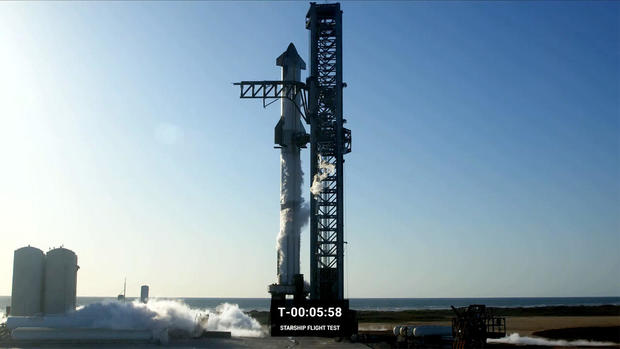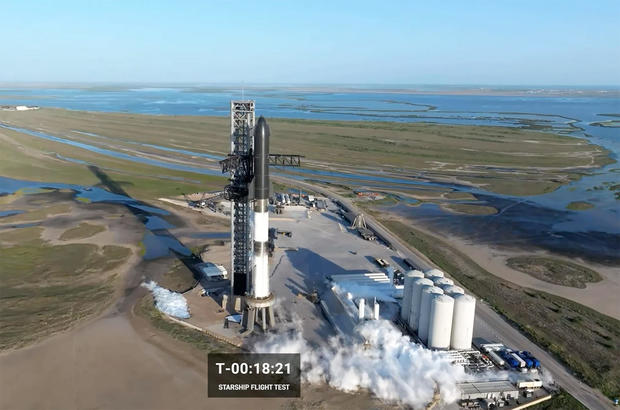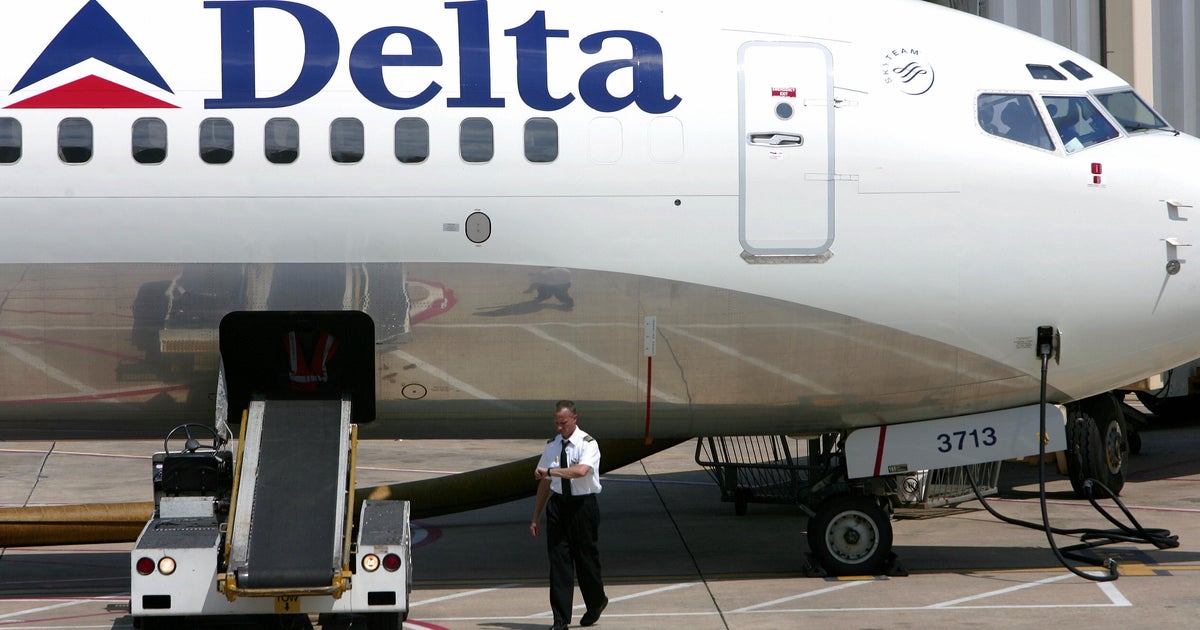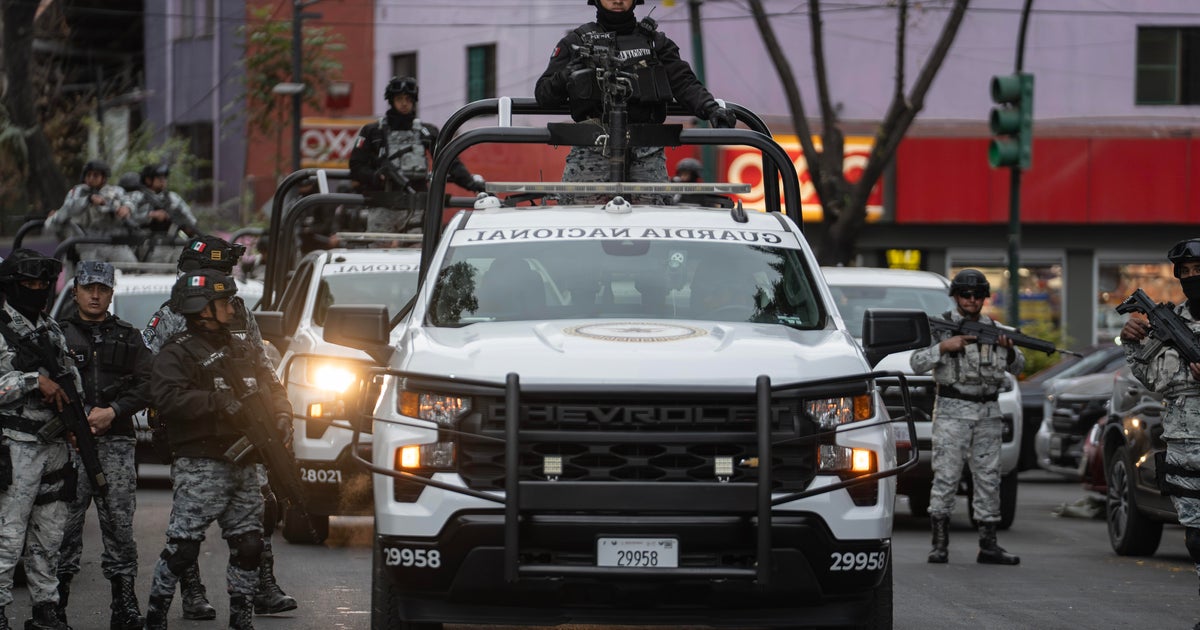SpaceX delays maiden flight of world's most powerful rocket due to frozen valve
After months of anticipation and just three days after getting government launch approval, SpaceX was forced to call off the maiden flight of its gargantuan Starship rocket Monday when a frozen valve caused problems pressurizing the booster's first stage.
Time needed to resolve the valve issue and replenish supplies of liquid oxygen and methane propellants at the company's Boca Chica, Texas, flight test facility — "Starbase" — will delay another launch attempt at least two days.
And so, instead of launching the world's most powerful rocket, SpaceX engineers used the countdown as a "wet-dress rehearsal" fueling test.
"Any data that we can collect today is super helpful, and that's exactly what we're doing," said SpaceX commentator Kate Tice. "We are continuing to collect this data and allow the team to be better informed for the next attempt.
"Unfortunately, due to the need to recycle the propellant, we are looking at a minimum of 48 hours before we can attempt this flight test again."
Loaded with just over 10 million pounds of liquid oxygen and methane propellants, the 394-foot-tall 30-foot-wide Starship is the largest, most powerful rocket ever built, surpassing NASA's legendary Saturn 5 and the Soviet Union's ill-fated N1 moon rocket.
The 230-foot-tall Starship "Super Heavy" first stage, powered by 33 methane-burning Raptor engines, will generate a ground-shaking 16 million pounds of thrust at liftoff, twice the power of NASA's Space Launch System moon rocket.
The bullet-shaped 160-foot-tall Starship second stage is equipped with six Raptors of its own, along with steerable fins at nose and tail to control the ship during atmospheric re-entry from space. The two stages together can lift 100 tons to low-Earth orbit.
Both stages are designed to be fully reusable, descending to rocket-powered touchdowns for refurbishment and relaunch. For the first test flight, however, SpaceX will not attempt to recover either stage.
Instead, the Super Heavy first stage is expected to fly itself to a "hard" landing in the Gulf of Mexico 20 miles or so from Boca Chica, where it will simply sink. The Starship will crash back to a destructive splashdown about 150 miles north of Hawaii after a ballistic flight nearly all the way around the planet.
SpaceX founder Elon Musk downplayed expectations Sunday night in a Twitter "Spaces" call to his subscribers.
"I would just like to set expectations low," he said. "If we get far enough away from the launch pad before something goes wrong, then I think I would consider that to be a success. Just don't blow up the launch pad!"
A few minutes later, he added "probably tomorrow will not be successful, if by success one means reaching orbit. ... It's just a very fundamentally difficult thing."
But the countdown Monday proceeded through propellant loading without a hitch, the sky was clear, winds were within limits and a boat in the off-shore danger zone was expected to be out of the area by the time the clock hit zero at 9:20 a.m. EDT.
But with less than 10 minutes to go, engineers noted problems with a valve used to help pressurize one of the two propellant tanks in the Super Heavy first stage. The tanks must be pressurized to specific levels o drive methane and oxygen into the engines at the rates required for startup and normal operation.
Musk told subscribers Sunday gaseous oxygen and methane are used for pressurization and that a major challenge is ensuring the gases do not get cold enough to liquify in the ultra-low-temperature environment inside the tanks.
Whatever the cause, he tweeted Monday that "a pressurant valve appears to be frozen, so unless it starts operating soon, no launch today."
As it turned out, the problem could not be quickly resolved, the launch was called off and the countdown clock stopped ticking at T-minus 40 seconds.
"The chances of us triggering an abort and having to postpone the launch are high," Musk said Sunday night. "That's why I want to just set expectations appropriately.
"This is not like some sort of train leaving the station at precisely like 9:03 a.m. or something like that. It's the first launch of a very complicated, gigantic rocket. ... We're going to be very careful, and if we see anything that gives us concern, we'll postpone the launch."









